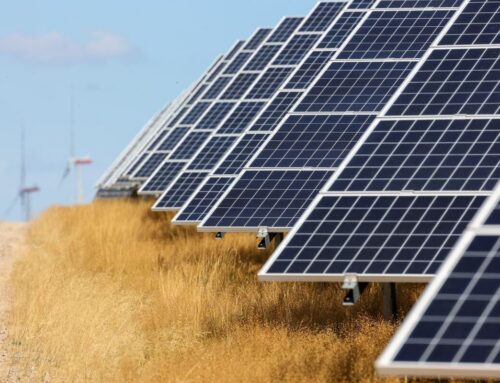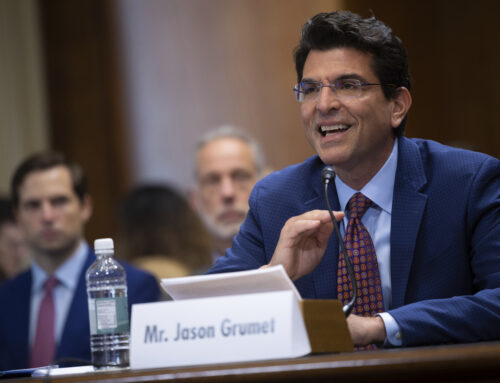Labour not protecting people, economy and homes from climate crisis, watchdog says
April 29, 2025
Labour is putting people, the economy and the environment in increasing peril by failing to act on the effects of the climate crisis, the UK’s climate watchdog has said.
Flooding, droughts and heatwaves are all increasing in severity due to climate breakdown, but current plans to protect people, land and infrastructure against extreme weather have been judged inadequate in a scathing assessment of the UK’s preparedness.
Lady Brown, the chair of the adaptation subgroup of the Climate Change Committee (CCC), the statutory adviser to government, said: “We are seeing no change in activity from the new government, despite the fact that … it’s clear to the public that the current approach just isn’t working. The country is at risk, people are at risk, and there is not enough being done.”
She said it was frightening that the government was not taking seriously the rapidly increasing risk of flooding and was instead considering cuts to flood defences.
The Treasury has indicated that flood spending would not be ringfenced and could be reduced in the spending review in June.
Brown said: “If that means they’re thinking of cutting the money for resilience to flooding, we would ask them to think again. I can’t be clear enough about our message: we cannot wait to take action. This is not tomorrow’s problem. It’s today’s problem. And if we don’t do something about it, it will become tomorrow’s disaster.”
She pointed to floods in Valencia that killed 220 people in October and floods in Germany and Belgium in 2021 with similar numbers of deaths. “These are very close to home. These things could happen in the UK and we need government to recognise that this is the disaster that could be happening tomorrow and start to really take this seriously,” she said. “It is quite frightening that the evidence we’ve got shows that it isn’t yet.”
Without increased focus on making the UK’s infrastructure and economy more resilient to extreme weather, the impacts of the climate crisis could destroy about 7% of the UK’s GDP by 2050, the CCC found. This compares with a cost of cutting greenhouse gas emissions to net zero by 2050 of about 0.2% of GDP per year.

The CCC’s latest two-year assessment of the UK’s progress in adapting to climate change, published on Wednesday, found failure across every measure and every form of infrastructure, from transport and energy to communications. People’s health was being put at risk by the failure to adapt, the report found, and the natural environment was being damaged.
One in four properties will be at risk of flooding by 2050 unless urgent action is taken, up from about 6.3m properties today, the report found. More than a third of the railways and road networks are already at risk of flooding, which will rise to about half by 2050.
More than half of England’s top quality agricultural land is already at risk of flooding, and harvests like last year’s – the second worst for arable on record – could become more common.
Although many of the findings in the CCC assessment relate to measures taken under the previous government, Brown said that Labour was failing to respond to the threats. “We’re seeing no increase in action,” she said.
The Environment Agency warned last year that inflation was eating into flood defence budgets, meaning fewer people were being protected for the same expenditure. The National Audit Office warned of a quarter of new flood defence projects being abandoned.

A government spokesperson said: “As part of our plan for change we are investing a record £2.65bn to repair and build flood defences, protecting tens of thousands of homes and businesses and helping local communities become more resilient to the effects of climate change such as overheating and drought.”
Flooding is the most obvious impact of the climate crisis in the UK, but rising temperatures are also taking a toll. Drought has meant 20 million people are subjected to water restrictions, wildfires are outrunning the capacity of the fire brigade to extinguish them – the area burned in 2025 has exceeded the previous annual record before summer has even started – and heatwaves are forecast to become more frequent and intense.
The climate crisis is already imposing costs on the NHS. There were more than 3,000 excess deaths in England in the heatwave of 2022, and one in five doctors reported that surgeries and operations had been cancelled, the CCC found.
Philip Evans, a senior climate campaigner for Greenpeace UK, said: “Britain’s firefighters and insurers have already warned we’re not set up to cope with the increase in floods, wildfires and heatwaves. Now climate experts confirm it’s not getting better. This means our farms are under water, food prices are going up, homes are wrecked and ordinary people count the cost.”
He called for taxes on fossil fuel companies to pay for the preparations needed. “The government must bolster Britain’s resilience. Oil and gas companies are fuelling this extreme weather and making billions from doing it, so we need climate taxes on these profits to pay for adaptation measures and protect us from the extreme costs of weather chaos.”
Tom Lancaster, the head of land, food and farming at the Energy and Climate Intelligence Unit thinktank, called for ministers to rescind the cuts to sustainable farming programmes. The ECIU estimated that that the impact of the climate crisis added about £360 to the average household food bill in total for 2022 and 2023.
“Investing in [support schemes for sustainable farming] will be needed to build the resilience of UK food production, and will be a key test of whether the government has taken the criticism in this report on board,” he said.
Search
RECENT PRESS RELEASES
Related Post



